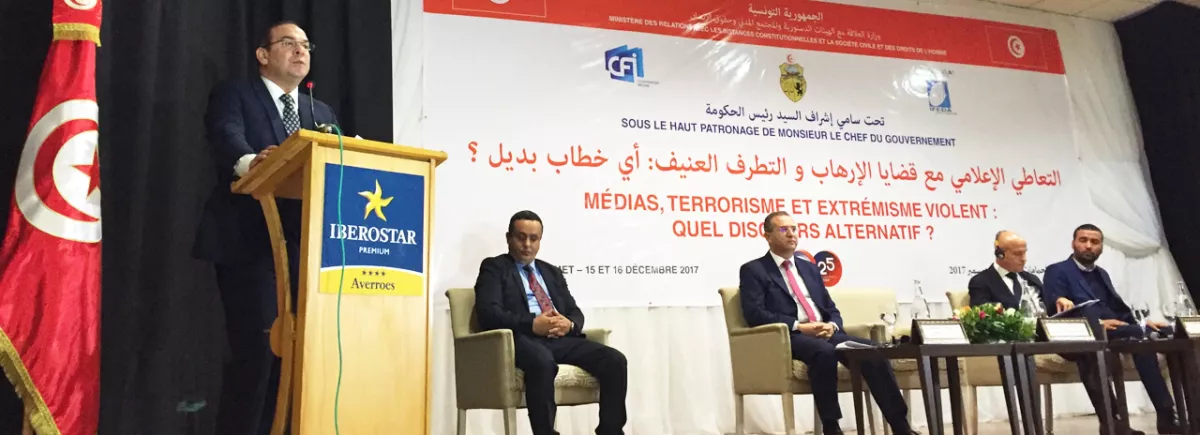
Terrorism and hate speech: what role should the media play?
Related project
Kalimat HorraOn 15 and 16 December 2017, 80 Tunisian journalists and institution representatives gathered together in Hammamet to discuss the role of the media in creating an alternative dialogue to combat radicalisation and extremism.
The conference began with a detailed examination of the traits of violent and radical rhetoric. The Franco-Moroccan Islamologist Rachid Benzine gave a presentation of the distinctive characteristics of extremist discourse, and underlined just how important it was for young people to develop a critical mindset in order not to be influenced by it.
The participants – a mixture of Tunisian journalists and representatives of institutions, government offices and human rights organisations – then discussed how to go about constructing and alternative dialogue and make it easier for media professionals to access information.
Mehdi Ben Gharbia – the Tunisian Minister of Relations with the Constitutional Bodies, Civil Society and Human Rights – spoke about the progress that the Tunisian media had made since 2011 in reporting on terrorist event, especially as regards self-regulation, even though an actual ethics code still did not exist for the profession.
By the end of the discussions, everyone had come to the same conclusion: to combat terrorism and extremism, it is absolutely vital to improve the relationship of trust between journalists and the institutions affected by these issues.
“The media play a crucial role in ensuring smooth transitions to democracy, reporting radical rhetoric and defending human rights.”
Abdelbasset Ben Hassen, Président of the Arab Institute for Human Rights


